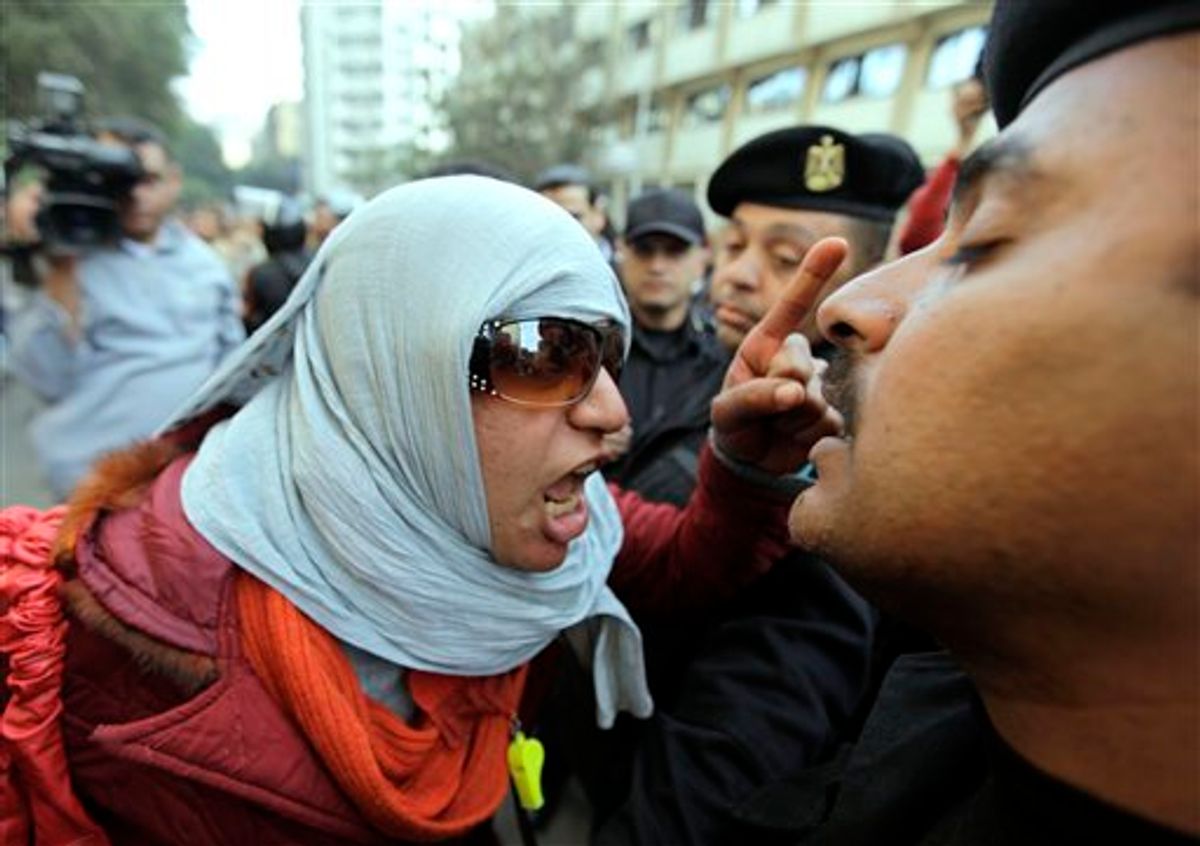Protests in Egypt continued today as demonstrators voice their anger at the government of President Hosni Mubarak. Reports suggest that yesterday's protests were smaller and more scattered than on Tuesday. Meanwhile, news continues to surface that the government has been blocking access to social media sites such as Twitter and Facebook (although the latter disputed that charge). In the wake of the so-called Jasmine Revolution in Tunisia, many are speculating about the potential for change in Egypt and elsewhere across the region. (Demonstrations also erupted in Yemen on Thursday.) Secretary of State Hillary Clinton urged the Egyptian government to allow peaceful protests and answer calls for reform.
However, others have already noted that it might be premature to call the events in Egypt a revolution. Here's a breakdown of the issues at stake -- by the numbers:
Five reasons why Egypt won't be a repeat of Tunisia, according to Ahram Online:
- Demographic: The Egyptian population, at 80 million, is eight times the size of Tunisia’s, and the majority still support the government, which provides massive protests notwithstanding.
- Geographic: Egypt is more than six times larger than Tunisia -- 387,000 square miles versus 63,000 square miles. Political views in rural areas differ greatly from the urban centers serving as battlegrounds for protestors.
- Social: Tunisian unrest stirred largely in the middle class whose feet fell out from under them during the global economic crisis. By contrast, the Egyptian middle class -- which comprises 62 percent of the population -- has enjoyed a relatively stable lifestyle.
- Democratic: The Ben Ali government in Tunisia quashed freedom of expression to a degree that make Egypt seem progressive by comparison. The Egyptian government permits a free and private media, political protests, and public debate.
- Political: While the Tunisian government was sclerotic and unresponsive to calls for change, the Egyptian government at least appears to have initiatives in place to focus energy on economic expansion.
Six significant (but perhaps not regime-ending) statistics related to the protests:
- 80,000: Number of Facebook users who pledged to protest in one group (MCDM, Univ. of Washington)
- 10,000: Number of protesters who marched on Tahrir Square in Cairo on Tuesday, just one of many such demonstrations across the country. (LA Times)
- 1,000: Number of protesters arrested by Egyptian government since demonstrations began and the number is growing. (AP)
- 1,000: Number of people who demonstrated outside a morgue in Suez, protesting the death of a protester. (The Guardian)
- 6.1: Number of points by which the Egypt’s benchmark stock index dropped on Wednesday -- the biggest one-day drop since November 2009. (FT)
- 6: Number of protesters confirmed killed so far. (The Guardian)
Seven memorable facts about the Mubarak Government:
- 82: Age of President Hosni Mubarak.
- 29: Years the regime has been in power.
- 29: Years Egypt has been in a state of emergency since the assassination of Anwar Sadat
- 20-30: Percent of the Egyptian population living below the poverty line. (MCDM, Univ. of Washington)
- 138: Rank on The Economist’s Democracy Index, out of 167 countries. (MJ)
- 1.3 billion: Amount, in dollars, the Egyptian government receives each year in aid from the United States, third overall behind Israel and Iraq. (MJ)
- 100: The number of pieces of luggage Mubarak's son Gamal and his family carried with them as they boarded a plane to flee from Egypt. (Times of India)
-------------
CORRECTION: This article originally listed the areas of Egypt and Tunisia in square feet instead of square miles, the correct unit of measurement.

Shares